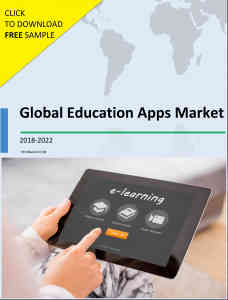The world is constantly evolving, and the increasing influence of smartphones in the education sector is certainly not news. The way we teach and learn today is no longer the same as it used to be a mere decade ago. Thanks to mobile devices, students and teachers alike are empowered by a surge of revolutionary technologies that has completely transformed the global education industry. Today, new ways of learning and teaching are being made available through mobile education apps, which have ultimately allowed education to reach new heights.
The power of mobile apps is already being leveraged by many countries, including the US, either in the form of changing the conventional way of going to school or doing away with books entirely. Herein are the top 4 education apps trends that are likely to cast an industry wide influence in 2018, and beyond.
 1) Cloud-Based Learning
1) Cloud-Based Learning
Cloud has been a critical disruptor of technology in a range of industry verticals, while also helping reap massive benefits. Same is the case for the education industry. The latter is using the cloud to make knowledge sharing simplified, enriched, and empowered. This not only helps reduce the need for an active infrastructure, but also significantly reduces IT costs while improving accessibility and opportunities for creating efficient and transparent collaborations.
The cloud offers significant potential in transforming how education works by offering online curricula to change the traditional learning ecosystem. Cloud-based mobile applications in education make it extremely easy for students to share their projects with educators in a trackable format. Cloud enables true collaborations by allowing a group of students to work on assignments on the cloud, individually or as a group, securely and seamlessly.
2) Mobile Immersive Learning
Mobile immersive learning delivers engaging and enriching content and experiences to the students. Device embedded learning products, language training apps, education game apps, IoT learning devices and memory training apps are common examples of high-impact education apps that deliver mobile immersive learning experiences to the subscribing students.
The significant feature of such education apps is the extensive usage of interactive and visual content, which makes these products extremely attractive to learners, helps build customer loyalty and offers companies ample opportunities to monetize.
3) Augmented Reality and Virtual Reality
Augmented reality (AR) in education will quickly revolutionize learning as we all know it. Indeed, AR will completely change the core specifics- including timing and location- of the study process and introduce exciting new ways of knowledge dispersal. AR is re-envisioning traditional classroom teaching and learning, adding animation and visuals on top of static content to trigger a learner’s imagination and teach complex concepts in greater detail.
Additionally, virtual reality (VR) allows students to actively participate in a topic, develop empathy for experiences outside their present realm of understanding, and consequently become fully immersed in their learning and exploration. The Titan of Space app is one of the best examples of VR in the education sector. The app provides a tour of the solar system and planets, helping students learn about the universe interactively.
4) Gamification
Using incentives to motivate students to stay involved in educational pursuits is not a new idea. However, the integration of incentive systems, game mechanics, and other concepts borrowed from the gaming world to build a game layer on top of existing educational methods is revolutionary, with many students, educators, and entrepreneurs taking notice. Studies show that students retain concepts better when they learn them while playing a game. Gamified learning apps use an informal environment to help students practice real-life challenges and situations in a safe atmosphere.
In summation- The future is bright for the education apps industry
A number of education IT companies around the world offer a range of mobile applications for different purposes and requirements of educators and students. The latter have been exposed to innovative ways of teaching and learning through these mobile education apps. An accountable, progressive and far reaching development, mobile education apps are the future of the global education industry.



